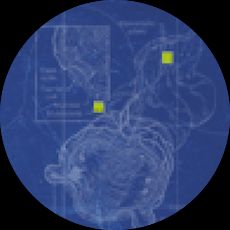Ulcerative colitis (UC) symptoms may include abdominal pain, cramping, and diarrhea. People can experience periods of remission followed by flare-ups, which can lead to treatment changes.
Ulcerative colitis (UC) is a form of inflammatory bowel disease (IBD) that causes inflammation in the colon and rectum. Doctors may need to try multiple medications to find the right treatment to help manage a person’s UC.
Dr. Michael Schopis answers some common questions about second-line treatments for UC, including their effects, benefits, and risks.
The term “second-line treatments” for UC is a bit of a misnomer because many of the medications we would try after an initial therapy did not work can also be used as initial therapy.
There are many options available, so we choose the initial therapy based on shared decision making with the person based on various factors, including:
- the severity of the disease (mild, moderate, or severe)
- strength of treatment (i.e., efficacy)
- onset of relief of symptoms (days, weeks, or months)
- possible side effects
- future risk of pregnancy
- route of administration (oral, or intravenous or subcutaneous injection)
If the initial therapy does not work, we typically switch to a completely different class of medications with a different mechanism of action that still aligns with the individual’s preferences.
In general, the available options that can be started as second-line agents, pending caveats, include:
- infliximab
- golimumab
- adalimumab
- vedolizumab
- ustekinumab
- risankizumab
- guselkumab
- mirikizumab
- ozanimod
- etrasimod
- tofacitinib
- upadacitinib
- filgotinib
One specific exception for the United States is that we can only use tofacitinib, upadacitinib, or filgotinib if a person has an intolerance to or has previously tried and not felt better with tumor necrosis (TNF)-antagonists (e.g., infliximab, golimumab, or adalimumab).
Another important recent recommendation by the American Gastroenterology Association in December 2024 is that if one or more advanced therapies — particularly TNF-antagonists — have not worked for a person with moderate to severe UC, the guideline is to use any of the following:
- tofacitinib
- upadacitinib
- ustekinumab
- filgotinib
- mirikizumab
- risankizumab
- guselkumab
If the advanced therapy that did not work was not a TNF-antagonist, infliximab could be an addition to the list of possible second-line treatment options.
A person should consider switching UC treatments if one of the following occurs:
- their symptoms worsen or do not improve
- they have significant side effects from their treatment
- they want to conceive, and their current medication has not been shown to be safe during pregnancy
There is no universal recommendation on the exact length of time to wait before switching therapy. It depends upon the severity of disease and the medication being used.
In general, a person with mild to moderate UC can wait many months before trying a second-line therapy, while a someone with moderate to severe UC should consider waiting at least 3 months before a change in therapy. This is because many medications may take this long or longer before experiencing positive effects.
Many times, if a drug is not working, we will assess if there are appropriate drug levels in the person’s system and whether the dosing or strength needs to be changed to achieve remission before switching medications, but this is drug-specific.
If someone has acute severe ulcerative colitis, we consider this a life threatening condition that requires hospitalization with a much shorter window for changing therapies or requiring emergent surgery (i.e., days versus weeks).
A suitable candidate is someone who has only been exposed to one therapy and is currently not improving despite waiting an appropriate timeframe or is having side effects that require cessation of their current drug. This person will have many possible options for second-line therapy.
In general, if a person has moderate to severe UC, the recommendation is to try any of the following medications:
- infliximab
- golimumab
- vedolizumab
- ustekinumab
- risankizumab
- guselkumab
- lebrikizumab
- ozanimod
- etrasimod
- tofacitinib
- upadacitinib
- filgotinib
If someone has moderate to severe UC and prior medications have not worked, especially TNF-antagonists, the recommendation is to try any of the following:
- tofacitinib
- upadacitinib
- ustekinumab
- filgotinib
- mirikizumab
- risankizumab
- guselkumab
Over the past 14 months or so, the Food and Drug Administration (FDA) has approved several new medications, including mirikizumab, guselkumab, risankizumab, and etrasimod.
The first three drugs have subtle differences, but they all attempt to target a proinflammatory signaling protein called interleukin-23. Etrasimod targets a different molecule called sphingosine-1-phosphate receptors. Recommendations for their use are outlined above.
Dr. Michael Schopis is an ABIM board-certified internal medicine physician specializing in gastroenterology and hepatology. He is currently a practicing physician at Manhattan Gastroenterology in New York City, and he specializes in GERD, dyspepsia, irritable bowel syndrome, inflammatory bowel disease, colon cancer prevention, and hemorrhoid treatment.

